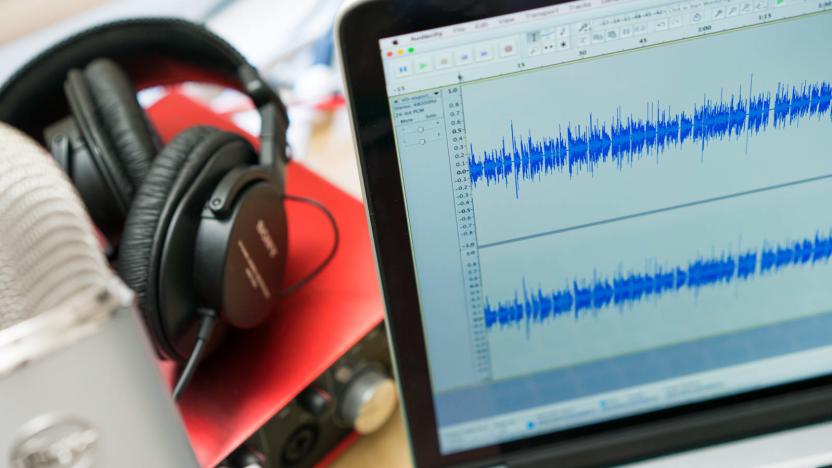auditioncc
Latest

The best audio editing software for beginning podcasters
By Al Griffin This post was done in partnership with Wirecutter. When readers choose to buy Wirecutter's independently chosen editorial picks, Wirecutter and Engadget may earn affiliate commission. Read the full audio editing software for beginning podcasters guide here. After 30 hours spent using and comparing audio editing software, we've found Audacity to be the best all-around option for beginners looking to create their own podcasts. The open-source Audacity runs on Windows, Mac, and Linux computers, and it's free, which eliminates one of the biggest stresses of trying out software. Audacity's user interface is bare-bones compared with that of its competition, including other free options like Apple's GarageBand, but it provides all the tools, features, and support you need to quickly and easily create great-sounding audio productions. It offers, by far, the best value of all the audio software we tested. While recording and editing in Audacity during our tests, we quickly realized that a powerful and feature-packed application lay beneath the software's stripped-down interface. Controls for setting up external equipment such as a USB microphone or audio interface are located in the main window for easy access. The main window also contains panels with everything you need to edit, monitor, and mix audio tracks. In addition, Audacity comes with a sophisticated suite of audio-processing effects to remove the noise, coughs, clicks, and other unwanted sounds that microphones can capture during recording. And although learning how to best apply those effects takes time, Audacity's thorough online manual, tutorials, and support forums will speed you through the process. It doesn't support MIDI or musical-instrument plug-ins, so it isn't the best choice for solo musicians looking to make finished musical tracks, but it is a complete package for anyone who just wants to experiment with recording audio. Like Audacity, Reaper packs a wide range of audio editing tools and audio processing effects. Reaper's interface is more sophisticated, though, and its MIDI-editing features make it a better option for anyone who wants to add their own music to their podcasts, or even for solo musicians/producers looking to make finished tracks at home. Reaper's wealth of features and customization options put it on the same level of functionality as industry-standard digital audio workstations (DAWs) like Cubase and Pro Tools, but at just $60 for an individual or nonprofit license at this writing, Reaper costs about a fifth as much—it's a tremendous deal. Compared with those programs, Reaper is highly approachable and easy to learn, with an extensive library of online help and video tutorials to get you up and running. Once you've learned the ropes of basic audio editing and you're ready to step up your game (that is, take your podcast to a larger audience), we recommend Adobe Audition CC, a powerful platform with an exhaustive range of tools to smooth out and sweeten the sound quality of recorded tracks. Its noise-reduction features in particular are top-notch, and its EQ tools go a step beyond those of the other software we evaluated for this guide. Audition is easy to use, with a clean user interface and a wide range of templates and presets, but it also offers a high level of customization. At $20 per month, or $240 per year, it isn't cheap, but it is the best podcast recording and editing software in that price range. If sound quality is your main concern, Audition is well worth the investment.